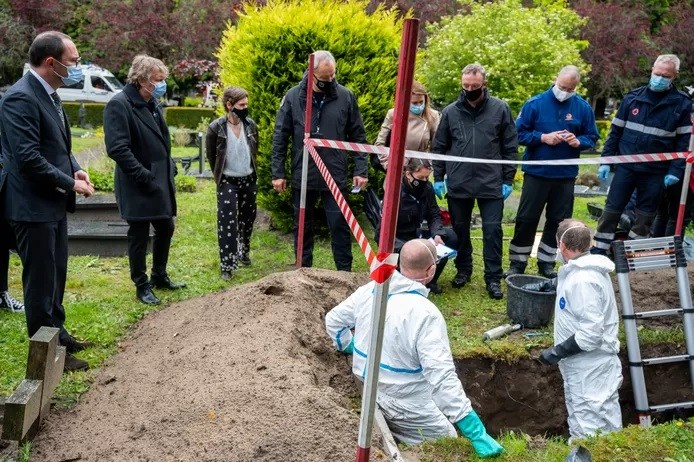Interpol, the international police organisation, is this month launching a new DNA database to aid in identifying missing persons’ remains wherever they may be found.
However Belgium, which has just such a database of its own, will not be able to join the new network, because of a legal technicality.
Last month the Belgian federal police’s Missing Person Unit started a campaign of exhuming 250 sets of human remains that had been buried without ever being identified. In some cases, facial recognition or fingerprint identification was impossible. In other cases the remains consisted of no more than a single body part. In still other cases, the person had been buried before DNA identification was available.
The idea was to use the Belgian DNA database to try to put a name to some of the remains.
The Interpol database, named I-Familia, serves exactly the same purpose. Even before its official launch this month, the database had successfully closed a case that had remained unsolved for 16 years.
In 2004, the body of a man washed ashore on the Adriatic coast of Croatia. The man could not be identified, and that remained the case until late last year, when DNA was taken from the children of an Italian man who had disappeared in 2004, and a match was found.
For that sort of breakthrough, international cooperation is needed.
“Identifying missing persons globally has always been challenging, due to the lack of data exchange procedures, combined with the scientific complexity of statistical interpretation,” said Dr Arnoud Kal, senior forensic scientist at the Netherlands Forensic Institute, one of the world’s leading forensic laboratories.
“Therefore, we believe the development by Interpol of I-Familia opens up new opportunities for member countries that will positively impact the effectiveness of international missing person investigations,” he said.
But Belgium will not be taking part, because under Belgian law, the DNA database is managed by the justice ministry, not the police. That means it cannot be shared with police forces elsewhere.
While the Belgian police can consult the database, it cannot be opened up to other forces, even under the aegis of Interpol. Now the search is on for a solution.
“I-Familia seems like an interesting tool,” said a spokesperson for the National Institute of Criminology and Criminalistics. “We are still studying how Belgium could participate.”

